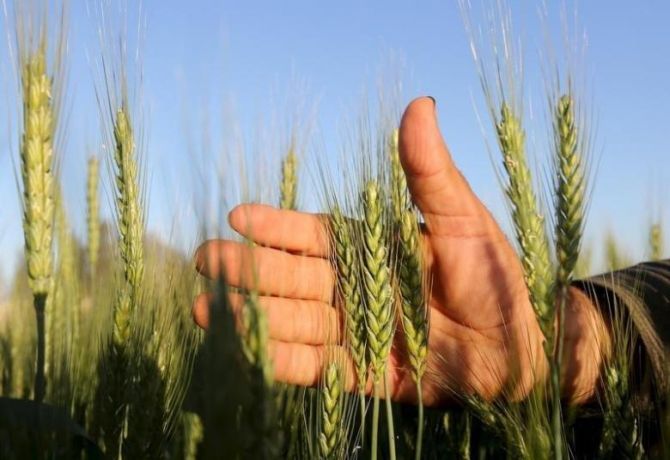The government is looking at tweaking provisions of the Indian Contract Act of 1872 to bring agreements between farmers and companies under its ambit, aiming to prevent exploitation of farm people.

The Centre will use its powers under the Constitution’s Seventh Schedule to free up inter-state and intra-state trade in agricultural commodities as it allows agricultural price marketing committees (APMCs) to continue.
The government is looking at tweaking provisions of the Indian Contract Act of 1872 to bring agreements between farmers and companies under its ambit, aiming to prevent exploitation of farm people.
The Seventh Schedule allocates subjects to the Centre and the states. Some subjects are in the Concurrent List where both the Centre and the states can frame laws, but only the law framed by the Union government prevails in the event of clash between the two laws.
The Centre will use Entry 42 of the Union list along with the Entry 33 of the Concurrent List to frame a legislation that will free up the inter-state trade in all agricultural commodities and intra-state trade in specific farm produces.
Entry 42 empowers the Centre to frame laws for inter-state trade, while Entry 26 of the state list empowers states to frame rules and laws to regulate trade within their boundaries.
But, the provisions of Entry 26 are subject to the Entry 33 of the Concurrent List which empowers both the Centre and states to frame rules and laws relating to production, distribution and supply of foodstuffs, including edible oil and oilseeds. As cited above, union law has supremacy over the state legislation in the Concurrent List.
The structure of the existing APMCs won’t be changed or altered.
Officials said the Centre planned a sweeping legislation to enable free trade of agriculture produces, but outside the regulated market yards.
The legislation will pave the way for an alternative selling mechanism for the farmers alongside the existing APMCs to ensure a sort of competition between APMCs and private direct trade.
“The new law will dismantle the entry barriers that exist between states and within states and will enable direct trade between the farmers and traders outside the APMCs across the country. This law will be passed in Parliament or could be even implemented through an ordinance,” a senior official said. The new Act will enable direct purchase by any traders.
For the second piece of legislation, officials said the Union government is exploring the prevailing provisions of the Indian Contract Act for making a legal framework to protect farmers in case of contract farming and also laying down rules for companies which enter into such agreement with farmers.
The Act guides all existing contract arrangements, but farming is not under it. In other words, contract farming is not allowed. The provisions of this Act will be explored to include farming within its ambit.
The proposed amendment to the Essential Commodities Act to deregulate cereals, edible oils, oilseeds, pulses, onions and potato matches the two legislations, officials said. These moves will enable a big processor to purchase directly from farmers anywhere in India without worrying about the legal problems that he might encounter and also store much as he wants without worrying about stock holding limits.
“These will bring scale into farming operations,” said the official.












 © 2025
© 2025